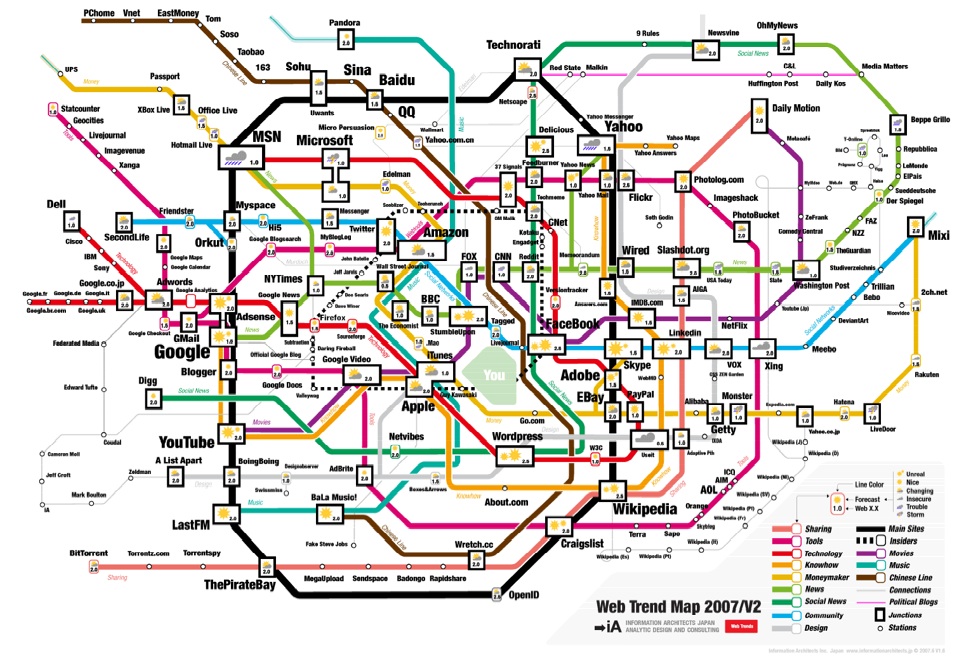mdst_110 / 2007_fall / week_12

should we take the blue line from myspace to amazon or should we just walk there...
agenda
-
discussion: the wealth of networks (continued)
-
1.0 project critiques
-
group work on projects
-
for next week
keywords
questions from lecture
1. "we can't privatize the air we breathe," claimed siva. true?
2. how does wikipedia change our notions of authorship?
3. should we value consensus over expertise?
4. what do you think of wikipedia's ", unless jimbo" emperor clause? does its
tendency toward a "constitutional monarchy" undermine its ostensibly democratic infrastructure?
5. can wikipedia ever achieve true neutrality in the presentation of their articles? consider siva's mention of the entries by the ccp and a neo-nazi group, and their subsequent removal. does this kind of refereeing neccesarily constitute a bias by eliminating certain points of view? Consider diferent constructions/interpretations of historical events (e.g. the american revolution).
6. is wikipedia more important than the new york times?
7. is wikipedia a viable research tool? if you were a professor, would you allow your students to cite wikipedia?
8. do you care if the content you post on the web belongs to you or not?
questions from readings
1. what are the benefits and drawbacks of the migration of public resources to the
internet?
2. benkler predicts that the internet will replace traditional telephone service, and bartow argues that
this will restrict communication for those without constant internet access. does this seem like a logical prediction or not?
do devices like blackberrys represent the integration of the computer into the phone instead of the other way around?
3. bartow argues that "it is not at all clear that digitalization enhances
access, and it may instead be true that it decreases the scope of collec-
tions over time" (465). could it be possible that digitization actually reduces access for all, despite appearances to the contrary?
4. "in many respects," states bartow, "the law of the internet is the law of pornography" (455).
is she overstating the case, or do most studies on the cultural impact of digital media
(such as benkler's) underemphasize the role of pornography?
5. do pornography and/or astroturfing represent threats to the future of the internet, or as free speech, do they signal the democratic possibilities of cyberspace?
1. is benkler correct to suggest that the digital divide is diminishing,
or is hargittai correct in her counterargument that digital divide remains as
if not more significant of a factor than ever?
2. in balkin's summary of one of benkler's key categorizations,
"the reds represent pre-modern hierarchical methods of information production,
the blues represent modern mass communication driven by market forces,
and the greens represent commons based peer production. benkler thinks that the green world is a better world." do you think so too?
3. balkin regards benkler's "great leap of faith" as "the argument that peer production is an equally efficient (or sometimes even more efficient) method of producing information goods
that is also superior in terms of autonomy and participation." are you willing to make this leap of faith as well, or do you see problems with this model?
4. how autonomous and independent is nonproprietary social production in relation to market production?
miscellaneous questions
1. do sites like wikipedia-watch.org and
wikitruth.info
seem to present valid critiques of wikipedia?

